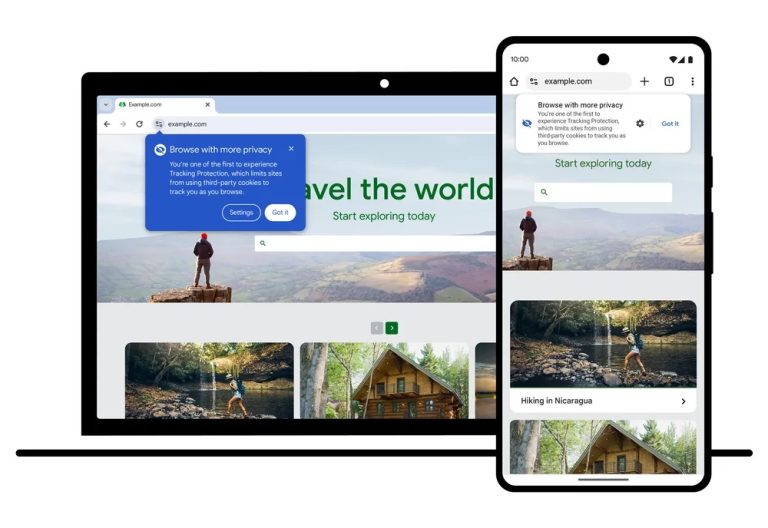Chrome is making third-party cookies a thing of the past
Late last year, Google shared more details about its plans to eliminate third-party cookies in the Chrome browser once and for all. The first major step of the plan goes into effect today, January 4, as Google is rolling out Tracking Protection to 1% of Chrome users. Over 3 billion people use Chrome, which means around 30 million users will be part of this rollout.
As Privacy Sandbox’s VP Anthony Chavez explained in a Google blog post, Tracking Protection “limits cross-site tracking by restricting website access to third-party cookies by default.” Cookies are what sites use to save your previously entered information (such as usernames, passwords, addresses, and card numbers) as well as track browsing activity.
Cookies can be helpful, but they also constitute a real privacy concern. The goal of the Privacy Sandbox initiative is to find more secure, private ways to collect data while serving relevant ads. This new feature for Chrome should be a step in that direction.
Before the end of the year, Google plans to phase out third-party cookies in Chrome altogether. In the meantime, millions of Chrome users will randomly be selected to participate while Google works with web developers to ensure the rollout goes smoothly.
If you are chosen, you’ll be notified as soon as you open Chrome on a desktop computer or your Android device. Here’s what the notification will look like:
If a site you visit fails to load or won’t function properly without third-party cookies, Chrome will prompt you in the address bar with an option to temporarily re-enable cookies for that website. Remember that many developers are going to have to do work behind the scenes to ensure these changes don’t break their websites when the rollout goes wide.
Late last year, Google shared more details about its plans to eliminate third-party cookies in the Chrome browser once and for all. The first major step of the plan goes into effect today, January 4, as Google is rolling out Tracking Protection to 1% of Chrome users. Over 3 billion people use Chrome, which means around 30 million users will be part of this rollout.
As Privacy Sandbox’s VP Anthony Chavez explained in a Google blog post, Tracking Protection “limits cross-site tracking by restricting website access to third-party cookies by default.” Cookies are what sites use to save your previously entered information (such as usernames, passwords, addresses, and card numbers) as well as track browsing activity.
Cookies can be helpful, but they also constitute a real privacy concern. The goal of the Privacy Sandbox initiative is to find more secure, private ways to collect data while serving relevant ads. This new feature for Chrome should be a step in that direction.
Before the end of the year, Google plans to phase out third-party cookies in Chrome altogether. In the meantime, millions of Chrome users will randomly be selected to participate while Google works with web developers to ensure the rollout goes smoothly.
If you are chosen, you’ll be notified as soon as you open Chrome on a desktop computer or your Android device. Here’s what the notification will look like:

If a site you visit fails to load or won’t function properly without third-party cookies, Chrome will prompt you in the address bar with an option to temporarily re-enable cookies for that website. Remember that many developers are going to have to do work behind the scenes to ensure these changes don’t break their websites when the rollout goes wide.
